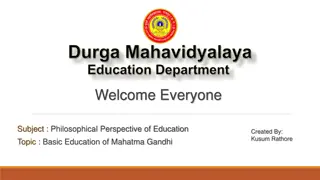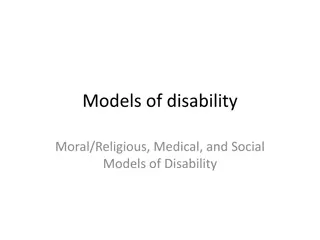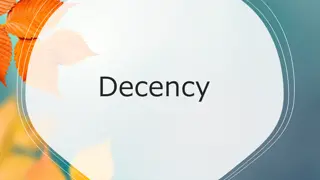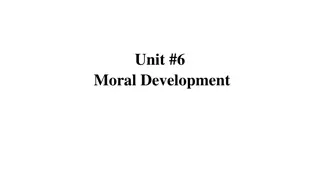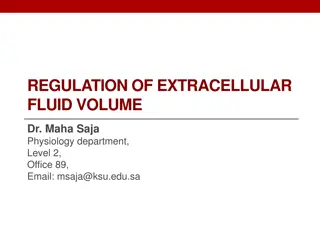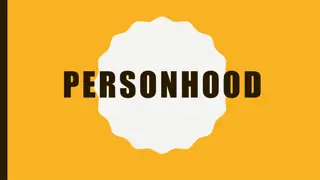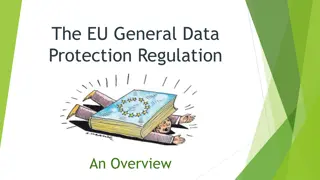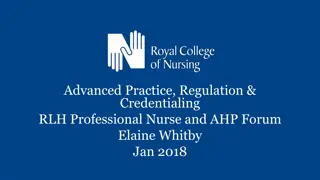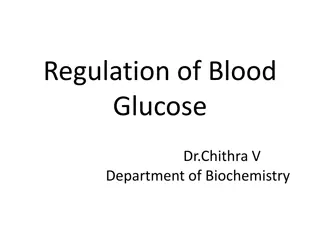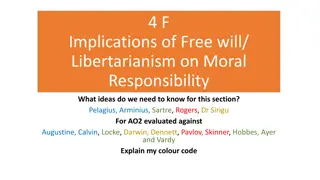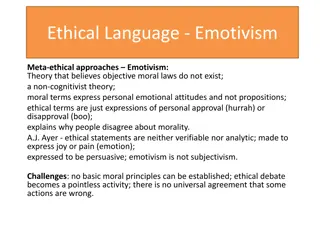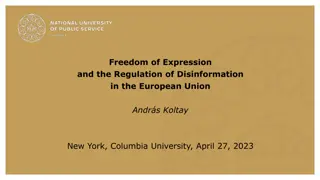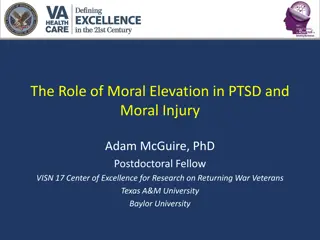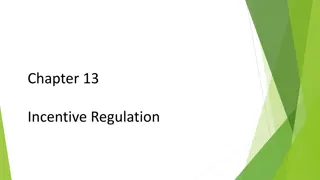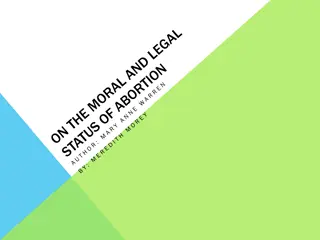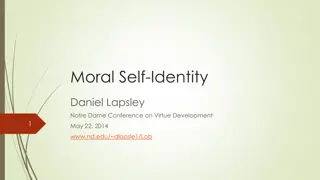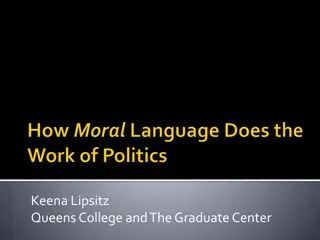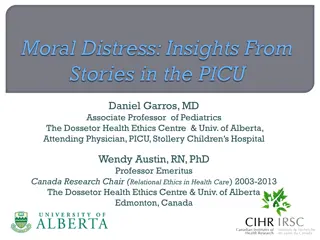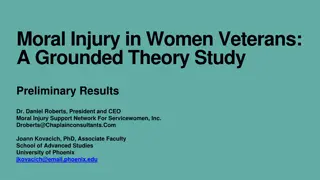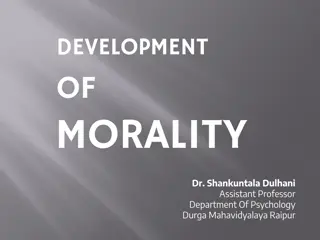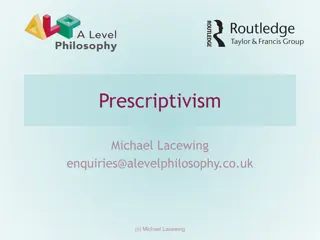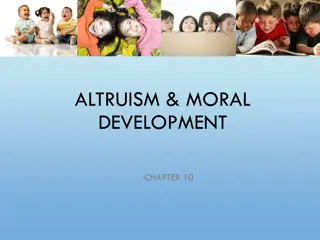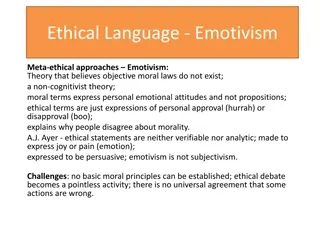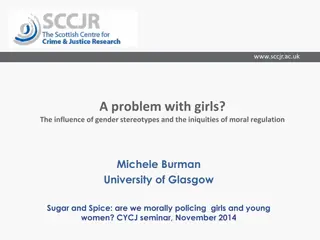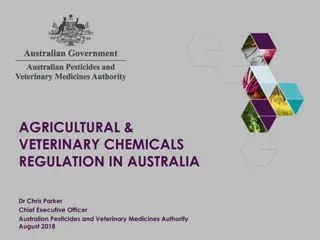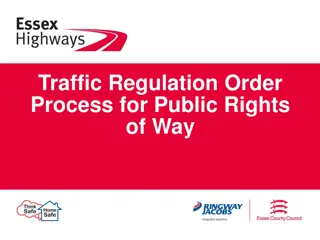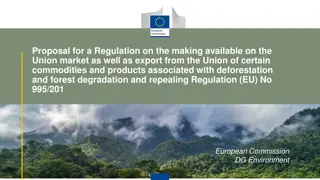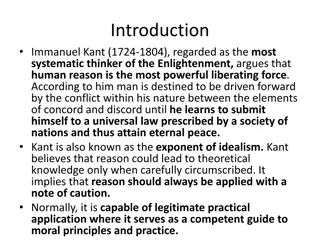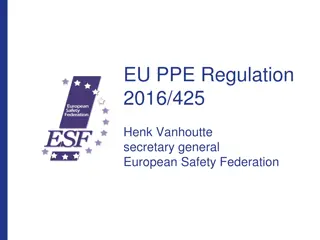Overview of EU Timber Regulation (EUTR) 995/2010 and its Application in Italy
The EU Timber Regulation (EUTR) 995/2010 aims to combat illegal timber trade by ensuring that timber placed on the European market is from legal sources. Applicable to most wood materials regardless of origin, the regulation requires due diligence in the timber supply chain. Italy implemented the re
2 views • 44 slides
Uncovering the Violent History of Capitalistic Enclosures
Explore the historical context of capitalist enclosures, their violent impacts on peasants, and the moral justifications used to conceal these atrocities. Delve into how economic narratives created moral bubbles to justify violent acts, as examined through the lens of Marx's analysis. Unveil the par
0 views • 11 slides
Durga Mahavidyalaya
Education is viewed as the acquisition of knowledge, skills, beliefs, and moral habits. Mahatma Gandhi introduced his Basic Education concept emphasizing free and compulsory education, mother tongue instruction, craft-centered learning, moral education, and character building. The curriculum include
0 views • 6 slides
Understanding Models of Disability: Moral, Medical, and Social Perspectives
The concept of disability is explored through moral/religious, medical, and social models. Impairment refers to a loss or abnormality in structure or function, while disability is a restriction in performing activities. The discussion also delves into the significance of person-first language and th
0 views • 35 slides
Cultivating Decency and Moral Excellence in Daily Life
Embrace a life of decency and moral refinement through moderation, purity, and vigilance. Uphold virtues of modesty, temperance, and clean-mindedness in all aspects of existence, fostering an environment of respect and dignity. Strive to elevate your character towards the divine, embodying qualities
0 views • 18 slides
Understanding Kohlberg's Stages of Moral Development
Kohlberg's stages of moral development, built upon Piaget's psychological theory, outline six developmental stages of moral reasoning, with each stage offering a higher level of response to moral dilemmas. Kohlberg focused on justice in moral development and emphasized the importance of how individu
0 views • 19 slides
Understanding Moral Development and Moral Reasoning
Moral development involves an individual's sense of right and wrong, influenced by family, school, friends, and societal environment. Children learn moral concepts from interactions with parents, teachers, peers, and society, shaping their understanding of good and bad. Additionally, moral reasoning
0 views • 13 slides
Regulation of Extracellular Fluid Volume: A Comprehensive Overview
Understanding the intricate mechanisms involved in the regulation of extracellular fluid volume is essential for maintaining normal body function. This includes sensor and effector roles in renal regulation, the influence of aldosterone on Na+ reabsorption, the significance of Na+ balance, and the i
1 views • 22 slides
Understanding Personhood: Philosophical Perspectives on Moral Consideration
Exploring the concept of personhood involves delving into what it means to be part of a moral community and deserving of moral consideration. Various criteria, from genetic to cognitive and social, are discussed, shedding light on the complex debates surrounding animal rights, abortion, euthanasia,
0 views • 10 slides
Understanding the EU General Data Protection Regulation (EU GDPR)
The EU General Data Protection Regulation (EU GDPR) is a comprehensive regulation that governs the processing of personal data of individuals in the EU. It came into effect on May 25, 2018, and applies to all organizations handling personal data of EU residents. The regulation includes key definitio
4 views • 21 slides
Emerging Trends in Regulation and Credentialing for Advanced Practice Nursing
Explore the evolving landscape of regulation and credentialing in advanced practice nursing, including inconsistencies in titles, the debate between regulation and credentialing, and the challenges and purposes of regulation. Discover the impact on roles, education, and patient safety in this rapidl
0 views • 22 slides
Regulation of Blood Glucose and Its Importance in Maintaining Health
Blood glucose regulation is crucial for energy supply in the body, particularly for brain function. Understanding the balance of glucose entering and leaving the blood through processes like absorption, glycogenolysis, and gluconeogenesis is vital. Hormones like insulin and glucagon play key roles i
0 views • 10 slides
Moral Responsibility and Free Will Implications in a Contemporary Context
This text delves into the implications of free will and libertarianism on moral responsibility, examining the ideas of various philosophers and thinkers such as Pelagius, Arminius, Sartre, and more. It explores the concepts of moral agency, determinism, normative ethics, religious beliefs, and the c
5 views • 12 slides
Understanding Emotivism in Ethical Philosophy
Emotivism is a meta-ethical theory that rejects objective moral laws, instead positing that moral terms express personal emotional attitudes, not universal truths. Influenced by A.J. Ayer and rejecting naturalism, this theory suggests that ethical statements are not objective propositions but rather
0 views • 28 slides
Regulation of Disinformation in the European Union: A Comprehensive Overview
The discussion covers the regulation of disinformation in the European Union, focusing on freedom of expression, legitimate restrictions on untruthful speech, media regulation provisions, and the code of practice on disinformation. It delves into key aspects such as hate speech, right of reply, regu
10 views • 15 slides
Enhancing Self-Regulation for Formative Assessment through Social and Emotional Learning
Explore the significance of self-regulation in formative assessment, understand key concepts like self-control, emotional competence, and perseverance. Discover actionable strategies to implement self-regulation interventions with students and train other adults effectively. Future orientation and s
0 views • 25 slides
Challenges and Opportunities of Moral Revolution in Indonesia
The need for a moral revolution in Indonesia to address societal issues like corruption, conflict, and intolerance. Contrasting mental and moral revolutions, the focus is on behavior change to build a humane society with healthy moral values. Initiatives and discussions highlight the urgency of tran
0 views • 13 slides
Understanding Moral Elevation in PTSD and Moral Injury
The research by Dr. Adam McGuire explores the role of moral elevation in PTSD and moral injury, emphasizing how witnessing virtuous behaviors triggers emotional and physical responses leading to a desire for imitating virtuous acts. By integrating prosocial emotions into trauma treatment, the positi
0 views • 13 slides
Understanding Incentive Regulation in Utility Management
Incentive regulation in utility management involves various approaches such as Rate of Return Regulation (RORR), Price Cap Regulation, and Performance-based Regulation. Each method has its pros and cons, requiring careful consideration based on the specific setting. Rate hearings are essential quasi
0 views • 18 slides
Understanding Humanity and Moral Community in the Context of Abortion Ethics
Exploring the complex ethical considerations surrounding abortion, this discussion delves into determining the humanity of a being, defining the moral community based on traits of personhood, fetal development, and the right to life. The arguments include the morality of abortion, the definition of
0 views • 9 slides
Enhancing Self-Regulation Skills in Children: Strategies and Tips
Understanding and fostering self-regulation in children is crucial for their development. Self-regulation involves controlling impulses, focusing, and shifting between tasks. This article delves into the internal mechanisms of self-regulation, such as executive function, and provides practical tips
1 views • 22 slides
Challenges to Moral Anti-Realism: Objections and Responses
The article explores objections to moral anti-realism, including moral nihilism, condemning immorality, and the notion of moral progress in the absence of moral reality. It addresses concerns about the justification for interfering with others' behavior, the relationship between moral beliefs and ob
0 views • 6 slides
Understanding Moral Self-Identity Development
Situating moral self-identity within ethical theory and developmental psychology, this overview explores the centrality of morality within the self-concept. It discusses the chronic accessibility of moral schemas, the importance of strong evaluation in moral behavior, and the connection between mora
0 views • 33 slides
Understanding Moral and Constitutional Values in Relation to Judiciary
Explore the concepts of moral values and constitutional values, emphasizing their importance in decision-making processes and societal norms. Discover the stages of moral development and delve into constitutional values such as sovereignty, socialism, secularism, democracy, justice, liberty, equalit
0 views • 9 slides
Analysis of Moral Language in Political Communication
Explore how Republican and Democratic elites use distinctive moral language and its impact on voters in the context of the 2012 election data. Discover the application of Moral Foundations Theory in understanding political differences in the United States and how moral intuitions influence public op
0 views • 13 slides
The Influence of Disgust on Moral Behavior in Psychological Research
Explore the impact of disgust on moral behavior through various studies, including moral dilemmas and criteria for moral judgment. Research delves into how disgust affects decision-making processes related to moral dilemmas and helping behavior. Discover the connection between physical disgust and i
0 views • 16 slides
Understanding Moral Distress in Healthcare
This content discusses the concept of moral distress in healthcare, defined as the pain and anguish experienced when one knows the right thing to do but faces internal or external barriers preventing action. It explores the implications of moral distress on healthcare practitioners and emphasizes th
0 views • 25 slides
Insights on Moral Injury Among Women Veterans: Preliminary Study Findings
Preliminary results from a grounded theory study on moral injury in U.S. women veterans reveal themes such as sexual assault, hostile work environments, and more. Participants shared their experiences, highlighting the nature of moral injury they faced, distinguishing between various forms of discri
0 views • 21 slides
Understanding Moral Development: Insights and Perspectives
Morality is the belief in right behavior accepted by society. It involves moral behavior, feelings, and judgments. Moral development evolves from childhood to adulthood, influenced by experiences and challenges. Freud's id, ego, and superego theory and Skinner's behaviorism contribute to our underst
0 views • 12 slides
Exploring Moral Judgments and Prescriptive Meaning in Ethics
This content delves into non-cognitivism, Hare’s prescriptivism, and moral anti-realism to understand what we do when making moral judgments. It discusses prescriptive meaning, the concept of good, and how moral language guides actions. The objections raised regarding moral language's functions, p
0 views • 9 slides
Understanding Altruism and Moral Development Theories
Explore the components of morality, theories of moral development by prominent psychologists like Piaget and Kohlberg, and the stages of moral development in individuals. Learn about moral affect, reasoning, and behavior as integral aspects shaping one's ethical framework and decision-making process
0 views • 40 slides
Friedrich Nietzsche's Genealogy of Morals: Uncovering the Evolution of Moral Values
Friedrich Nietzsche critiques traditional philosophy for overlooking the historical development of moral concepts. He argues that moral judgments were initially based on strength and power, later evolving into the dichotomy of master and slave morality. By tracing the genealogy of moral terms, Nietz
0 views • 10 slides
Understanding Emotivism: A Non-Cognitivist Theory in Ethics
Emotivism is a meta-ethical theory that posits the absence of objective moral laws, suggesting moral terms express personal emotional attitudes rather than propositions. Influenced by philosophers like A.J. Ayer and Hume, it challenges the existence of basic moral principles and universal agreement
0 views • 23 slides
Exploring Gender Stereotypes and Moral Regulation Impacts on Girls
Analyzing the societal influences of gender stereotypes and moral regulations on the behavior and treatment of girls and young women, this study delves into historical perceptions, discourses surrounding vulnerability and risk, sexuality images, muddled discourses, incarceration trends, explanations
0 views • 8 slides
Agricultural and Veterinary Chemicals Regulation in Australia - Overview
The regulation of agricultural and veterinary chemicals in Australia is overseen by the Australian Pesticides and Veterinary Medicines Authority (APVMA), established in 1993. The APVMA is responsible for assessing and registering pesticides and veterinary medicines to ensure their safety and effecti
0 views • 15 slides
Traffic Regulation Orders for Public Rights of Way in Essex
Traffic Regulation Orders (TROs) are essential for temporarily or permanently restricting public rights of way in Essex under the Road Traffic Regulation Act 1984. Temporary Traffic Regulation Orders (TTROs) are used for short-term restrictions due to works or safety reasons. The TTRO process involv
0 views • 15 slides
Regulation Proposal to Combat Deforestation and Forest Degradation in the European Union
The European Commission is proposing a regulation to prevent the entry and export of commodities linked to deforestation and forest degradation. This aligns with political commitments such as the European Green Deal and the Farm to Fork Strategy. Existing legislation like the FLEGT Regulation and th
0 views • 32 slides
Kant's Moral Philosophy: Reason, Freedom, and the State
Immanuel Kant, a prominent Enlightenment thinker, emphasizes the liberating power of human reason in guiding individuals towards moral principles and practices. Kant's moral philosophy centers on treating each person as an end-in-itself, driven by the good will informed by reason. His concept of mor
0 views • 14 slides
Overview of EU PPE Regulation 2016/425 Changes
The EU PPE Regulation 2016/425, effective from 21/4/2018, brings significant changes to Personal Protective Equipment (PPE) rules. It replaces Directive 89/686/EEC and introduces stricter guidelines for economic operators, Notified Bodies, and authorities. The regulation includes updated definitions
0 views • 22 slides
Forms of Moral Reasoning and Ethics in Decision-Making
Explore the main forms of moral reasoning in ethical decision-making, including virtue ethics, deontological reasoning, and teleological reasoning. Understand the importance of developing ethical virtues and principles in guiding behavior. Delve into examples of reasoning from virtue and deontologic
0 views • 28 slides


